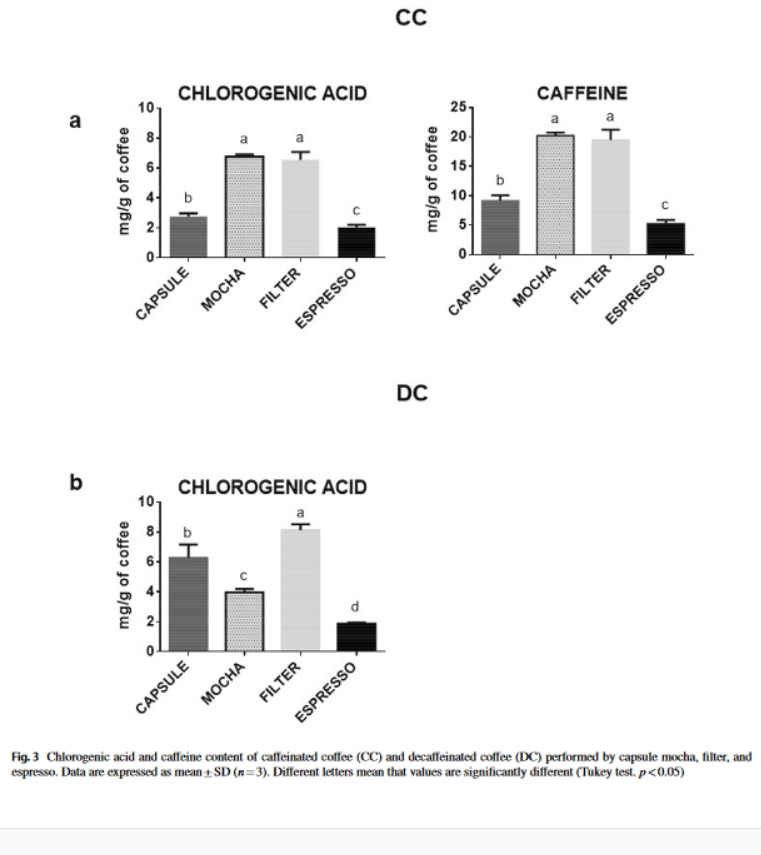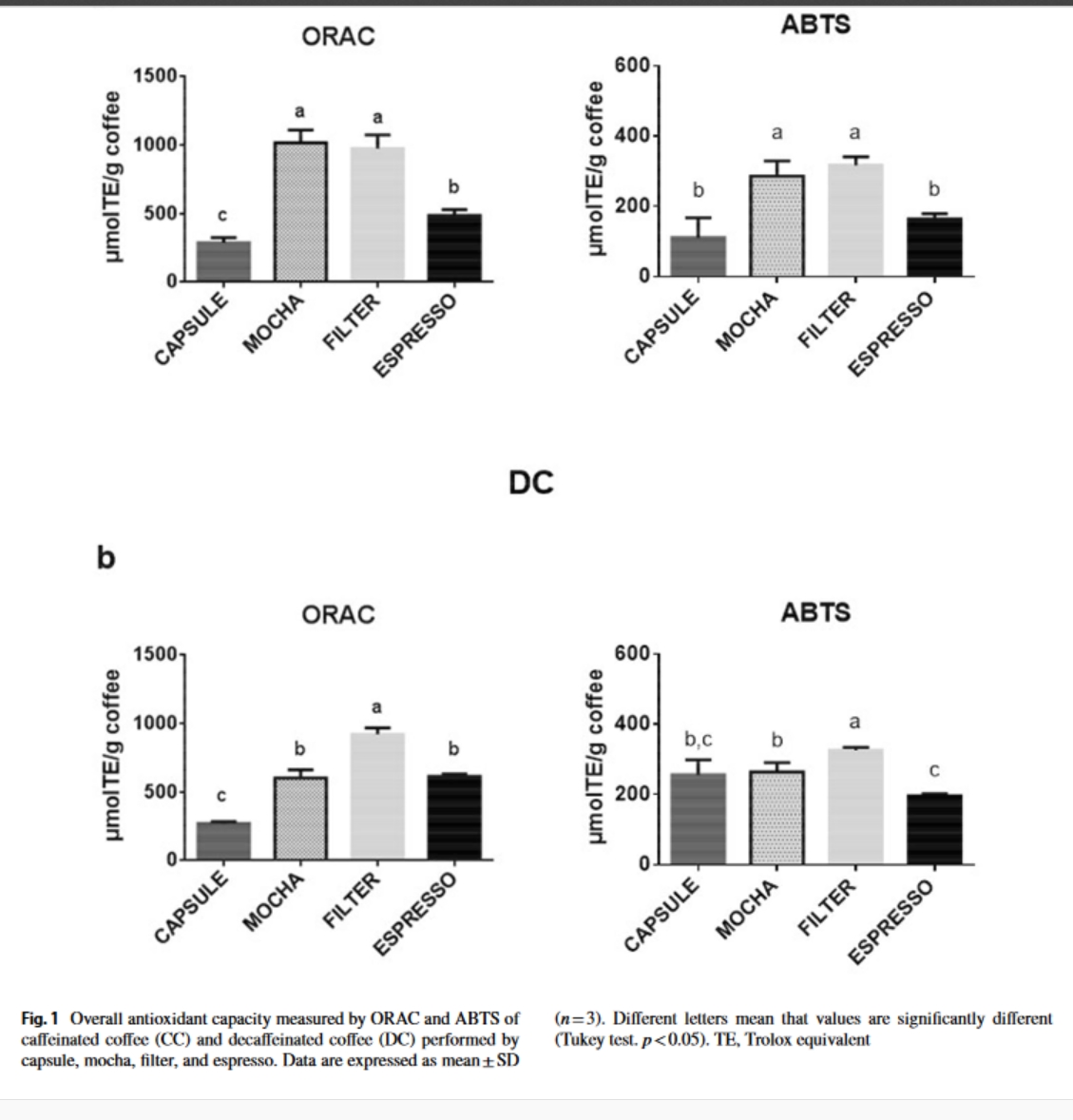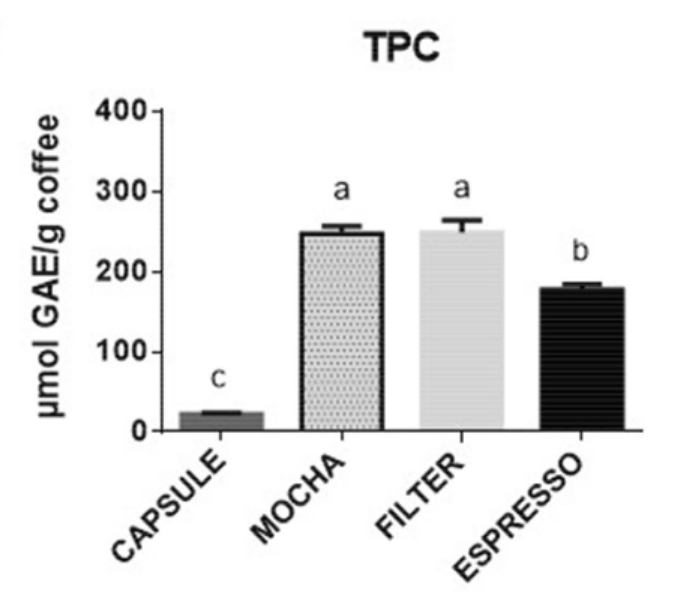Coffee capsules: implications in antioxidant activity, bioactive compounds, and aluminum content
Luis Isac-Torrente, European Food Research and Technology volume 246, pages2335–2347(2020)
The effect of new coffee brewing, coffee capsules, on the antioxidant activity (ORAC and ABTS), total phenolic content, chlorogenic acid, caffeine, and melanoidin concentration was assessed and compared with the conventional coffeemakers (filter, mocha, and expresso). In addition, the aluminum content was also analyzed to investigate the potential migration of this metal from the capsule to the beverages.
The capsule method showed the lowest values of antioxidant capacity and total phenolic content. Capsule coffeemaker had the lowest extraction yield of the main coffee antioxidants (chlorogenic acid and melanoidins). On average, the highest amount of aluminum was obtained in decaffeinated coffees. Moreover, despite the fact that the coffee is considered to be a poor source of aluminum for humans, when the sample is decaffeinated, especially by Swiss Water® method and prepared by capsule machine, its aluminum content notably increases. The data collected provide useful insights for the selection of the type of coffee beverage with the major content of bioactive compounds and the minor content of harmful components for health.
















